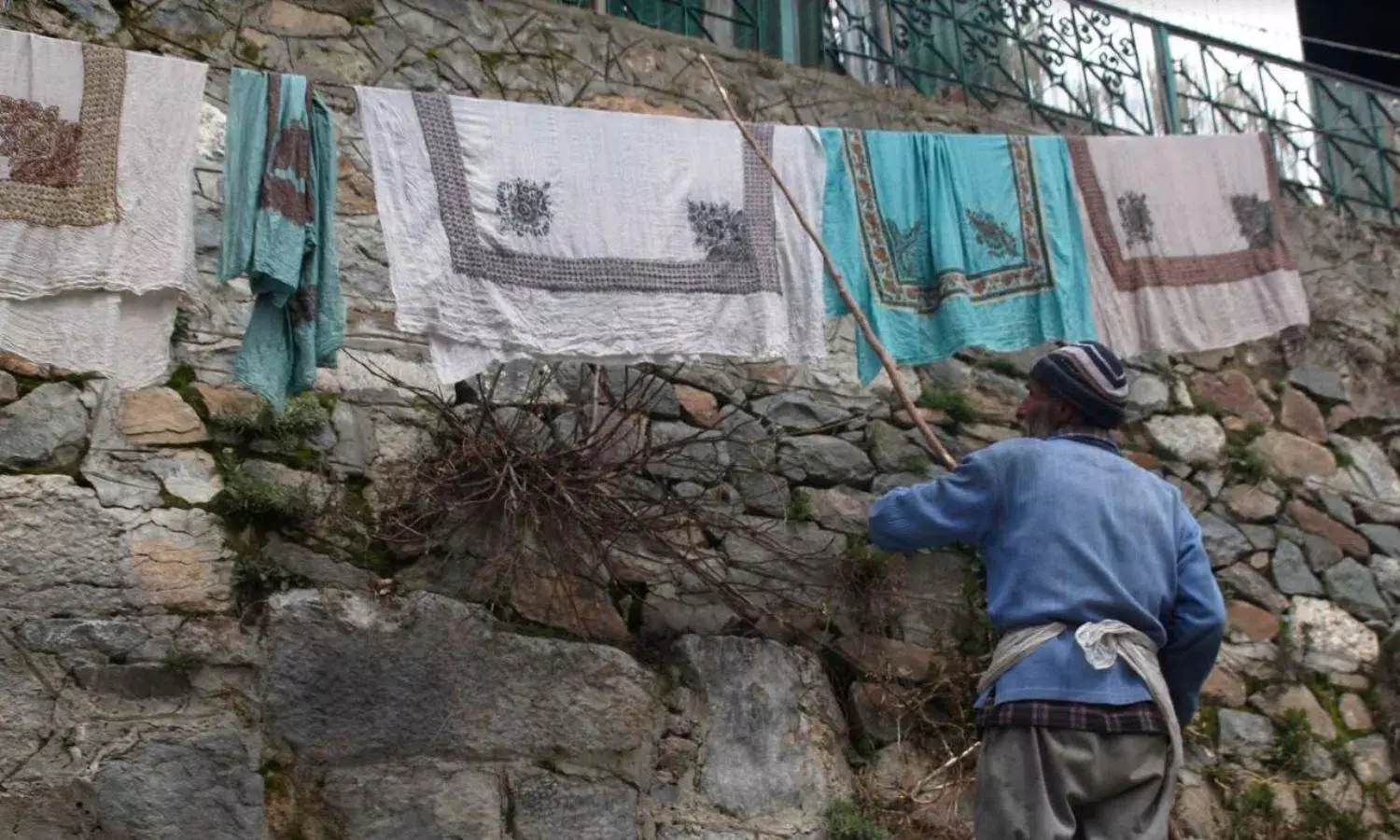Srinagar’s Dhobi Ghats Slowly Vanish
The business of manual washing has seen a steep decline;

It’s a sunny Monday afternoon and Ali Kadal is more or less deserted as I walk the narrow congested lanes leading to the centuries old ghats of the Jehlum river.
Hundreds of colourful embroidered clothes are hung out to dry on nylon ropes strung along the bank.
Every morning a variety of cloth for export is washed in the three remaining ghats - embroidered handkerchiefs, curtains, pashmina shawls.
Knee deep in the Jehlum’s lush water Abdul Rasheed Bhat, 54, beating an embroidered shawl on a flogging stone. Unaware of my presence yet, he sings a couple of Kashmiri songs.
Bhat rinses the cloth in the gushing water, squeezes it and throws it onto an aluminium tub.
Each morning Bhat and his three colleagues begin their work of washing different varieties of clothes. They are among the handful of dhobis who regularly wash clothes at this ghat.
‘More than a hundred dhobis used to be at this particular ghat every day to wash clothes,’ Bhat recalls while rinsing a pashmina.
With the advent of technology, the business of washing on the ghats has seen a steep decline.
‘Ever since new technology was introduced in the washing profession, orders from clients started decreasing as they prefer machines instead of the manual washing done by us,’ Bhat says hurriedly.
‘Many dhobis left the profession after that and have switched to other professions,’ he adds.
Another dhobi, Mohammad Ayoub Wani, in his mid-sixties is hanging freshly washed clothes out to dry on a rope in an open sky. He followed his father’s profession, he says. ‘My father and my forefathers did this work and so I followed them.’
‘With time, this profession also changed like the Jehlum,’ he adds in a hushed tone.
Ali Muhammad who joins the duo at this ghat every morning recalls how thickly populated were the ghats of the Jehlum.
‘There was a time when its ghats were the most attractive places on the Jehlum. There were hundreds of them, as a lot of people used to throng the ghats to wash clothes,’ Muhammad says.
Many dhobis believe their profession is on the brink of extinction. ‘Once we are dead, it will vanish with us,’ Muhammad says in a grim voice.
‘Our kids don't want to be called washerfolk, they have no interest in working as dhobis… Even the thought of it makes them feel uneasy.’

